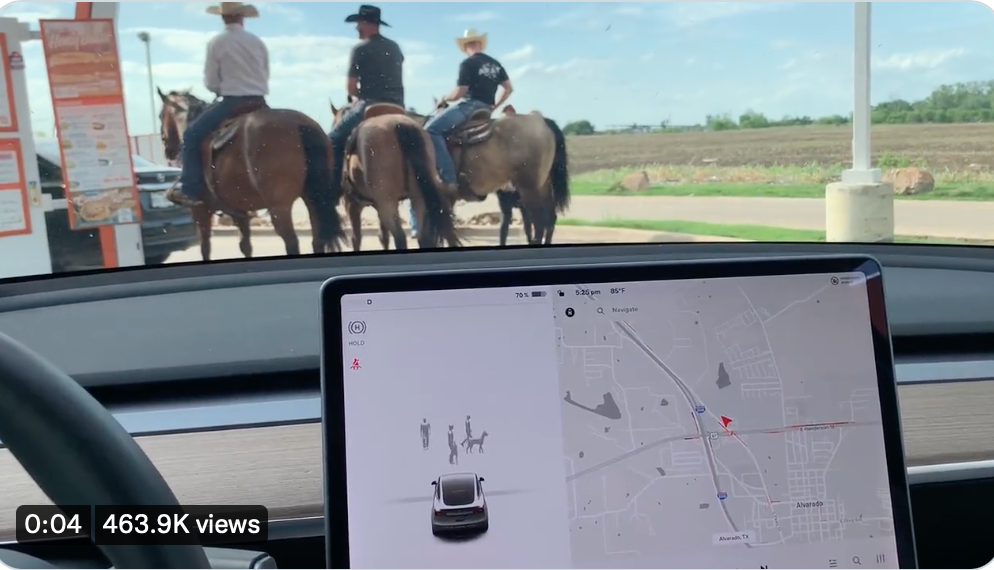
Tesla’s sophisticated cameras, sensors and radar enable the electric vehicles to detect all kinds of perils on the road, from the intensity of snowfall to approaching emergency vehicles.
But this week a Tesla driver in Texas noticed the car’s powerful artificial intelligence systems had a blind spot when it came to hazards of the four-legged variety.
Retired engineer C Biggs posted a video to Twitter from his vehicle as he waited at a drive-thru behind three Stetson-wearing men on horseback, which showed his Tesla touch screen struggling to recognise the animals.
“Could we get the Tesla software to better recognise horses in the drive thru..at Whataburger?”
“This is Texas you know,” he said, adding “jk” to indicate he was kidding, and tagging several accounts including Elon Musk.

Around 12 hours later, Mr Musk replied to the tweet, saying: “The car knows that something is there, just doesn’t know that they’re horses yet, but it will. Dogs, cats and many other animals will also be recognised.”
Mr Musk last week made a $44bn takeover bid for the social media company, and often interacts with users on the platform.
A pioneer in AI, the Tesla CEO oversaw the design of the advanced driver-assistance system features which use the electric vehicle’s onboard cameras to perform driving tasks such as automatic lane changes and semi-autonomous navigation.
He has also ventured out into designing a humanoid robot, Optimus, and this month he predicted the business will one day be worth more than his near-trillion dollar car company.
His brain-computer interface Neuralink plans to one day allow “human-AI symbiosis”, planting chips in brains to solve all kinds of conditions from spinal injuries to obesity.
But Mr Musk has also signalled warning signs about the ramifications of artificial intelligence and robots.
In 2017, he said there was a “five to 10 percent chance of success [of making AI safe]” and that companies working on the technology should slow down to ensure they don’t unintentionally build something dangerous.
Three years later, Mr Musk said there was a risk of humans being overtaken by artificial intelligence before 2025.







